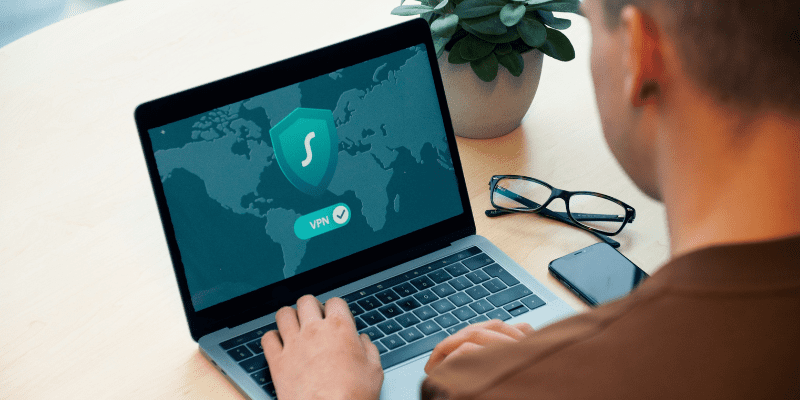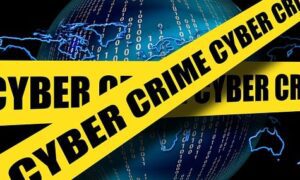We extend a warm welcome to our blog post series dedicated to the often unheralded champions of the legal domain – paralegals! As guardians of classified information and indispensable pillars of support, you wield a pivotal role in upholding the credibility and dependability of law firms. In today’s digital era, where cyber perils cast a long shadow, it is imperative for paralegals like you to equip yourselves with indispensable cybersecurity practices. From fortifying client data protection to safeguarding sensitive documents, this guide is designed to furnish you with valuable insights and pragmatic advice to reinforce confidentiality. Prepare for an enlightening expedition into the realm of cybersecurity meticulously tailored for paralegals, because the art of preserving secrets has never been more riveting!
Introduction
Maintaining the security of confidential information stands as a cornerstone for the prosperity of any legal practice. Yet, the upswing in cybercrime compels us to take stringent precautions against the potential theft of confidential information. Safeguarding your clients’ confidential information necessitates adherence to several foundational cybersecurity practices.
A prudent initial step towards securing your clients’ confidential data involves crafting robust passwords for your computer and email accounts. Ensure that your passwords comprise a minimum of eight characters, encompassing both upper and lower-case letters, numerical digits, and symbols. Furthermore, it is imperative never to divulge your password to anyone, colleagues included.
Remaining updated about the most recent cybersecurity threats constitutes another pivotal measure to protect your clients’ confidential data. Be proactive in installing suitable security software on your computer and maintaining vigilance against dubious emails or websites. Should you detect any suspicious activity involving your clients’ data, do not hesitate to reach out to your law firm’s IT department for assistance.
Exercising prudence while sharing personal information online is of paramount importance. Refrain from posting sensitive particulars such as social security numbers or credit card details online without first verifying their safety for dissemination. Additionally, exercise utmost caution and abstain from responding to unsolicited emails soliciting personal information – swiftly delete such correspondence!
Understanding Cybersecurity
The landscape of cybersecurity is ever-evolving, necessitating an unwavering commitment to stay ahead of the evolving threats. Presented below are fundamental cybersecurity practices tailored for paralegals:
- Safeguard the confidentiality of passwords and personal data.
- Implement robust security measures when accessing online resources, including email and social media accounts.
- Exercise vigilance against phishing scams, wherein malefactors pose as legitimate entities or individuals to pilfer personal information.
- Remain informed about industry best practices and routinely adopt basic cyber hygiene measures, such as updating antivirus software and configuring firewall protection.
- Promptly report any suspected cyber intrusions or vulnerabilities to your organization’s security team.
Significance of Cybersecurity
The significance of cybersecurity rests in its role as a bulwark for confidential information, whether belonging to an organization or an individual. Cybersecurity also serves as a deterrent against unauthorized access to data and systems.
Various categories of cyberattacks exist, encompassing attempts to pilfer information, compromise systems, or disrupt services. Predominant forms of cyberattacks encompass malware attacks (where hackers employ viruses or malicious software to commandeer computers), online scams (in which malefactors endeavor to deceive individuals into parting with their finances), and ransomware attacks (where hackers encrypt files on a computer and demand payment for decryption).
Paralegals must grasp the risks inherent in cyberattacks and adopt requisite precautions to safeguard their confidential information. Here are indispensable cybersecurity practices for paralegals:
Install updated security software: While most computers are equipped with standard antivirus software, regular updates are vital to detect novel threats. Additionally, paralegals should install security updates for applications utilized on their computers, such as word processors and email programs.
Secure personal information: The segregation of sensitive personal information from work-related data is paramount. Sharing of passwords or login credentials should be unequivocally avoided, with personal data consistently backed up to prevent inadvertent loss.
Shield electronic files: Encryption fortified by robust passwords should safeguard electronic files. Regular backups are essential, while caution must be exercised regarding software downloads from untrustworthy sources. Discernment in opening and responding to emails is also pivotal.
Prudence online: Online prudence is crucial, particularly when accessing public Wi-Fi networks. Refrain from disclosing personal information or login credentials online and approach activities like accessing bank accounts or financial data with circumspection.
Adherence to safety protocols: Strict adherence to technology-related safety protocols is imperative, encompassing refraining from clicking links in unsolicited emails and eschewing software downloads from unverified sources.
Varieties of Cyberattacks
Cyberattacks are on the rise, compelling legal practitioners to acquaint themselves with diverse attack forms for safeguarding confidential information. Here, we delineate three common cyberattacks:
Spear Phishing: A cyberattack variant wherein malefactors employ fraudulent emails to deceive individuals into disclosing personal information, including login credentials and account numbers.
Ransomware Attack: Malefactors employ ransomware to encrypt files on a computer system, rendering them inaccessible until a ransom is paid by the victim.
Identity Theft: This occurs when personal information is purloined and exploited to open unauthorized accounts, seek loans, or impersonate the victim online.
In the aftermath of a cyberattack, it is imperative to undertake measures to shield oneself and one’s information. Swiftly consulting an attorney is advisable to explore available options.
Safeguarding Against Cyberattacks
The paramount cyberthreat to paralegals is the compromise of confidential information. The American Bar Association underscores, “Confidentiality is a crucial aspect of privacy: the right to withhold personal information from disclosure without consent.”
To fortify the security of confidential information, diligently adhere to these critical cybersecurity practices:
Employ robust passwords: Any online platform or service should mandate a potent password. The password should comprise a minimum of eight characters, spanning uppercase and lowercase letters, numerals, and symbols. Eschew easily predictable terms like “password” and personal details like birthdates. Importantly, never divulge passwords to others.
Bolster computer security: Encryption of files – particularly sensitive ones or those requiring restricted access – is recommended. In Windows 7 or 8, encryption can be enacted by clicking the “Encrypt” option in the file menu. Alternatively, www.privateinternetaccess.com offers a free account for file encryption. Subsequent access is limited to authorized individuals (unless computer access permissions are granted).
Exercise discretion online: Steer clear of sharing personal data (addresses, phone numbers, etc.) in any online format. This applies to social media platforms like Facebook and Twitter, as well as public comment sections on websites.
Utilize secure browsers: Employ secure browsers such as Chrome, Firefox, or IE when online. Unsafe browsers (like Safari) may host viruses capable of pilfering passwords, credit card numbers, and confidential data.
Refrain from opening unsolicited email attachments: Any email containing links to files or documents should be treated with caution. Even if the sender appears familiar, exercising prudence with unsolicited email attachments is advised. Instead, save the file and open it using desired software.
Safeguarding Client Data
Confidentiality emerges as a cornerstone in safeguarding client data. Cybersecurity experts acknowledge the indispensability of preserving confidential information to ensure clients’ information remains safe and secure.
Multiple avenues exist to protect client data, encompassing:
- Adoption of robust passwords and authentication mechanisms.
- Segregation of personal files offline or through encryption.
- Regular backups of client data.
- Restriction of client information dissemination to authorized entities.
- Abstention from utilizing unapproved software or applications.
Preserving client data mandates proactive measures, utilizing a spectrum of strategies to secure information.
Conclusion
As a paralegal, your role encapsulates both significance and confidentiality. You hold the capacity to offer legal aid to those in need, but this responsibility comes hand in hand with acknowledging potential risks. This article delves into essential cybersecurity practices to observe when handling sensitive information or collaborating with clients. By adhering to these guidelines, you can safeguard your work and clients against potential cyber perils.



































